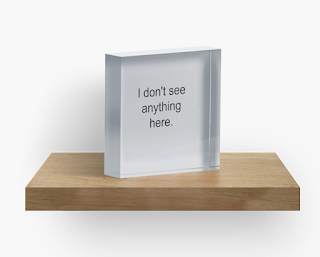50 Words Or Less
I suspect that social media is changing our relationships through thousands of tiny cuts. The first clue is the diminution of communication.
Word counts of exchanges can seem to drop to 50 words in an entire month, sometimes across email, texting, and social media posts combined.
Depending on how fast people speak, a one-hour telephone call could be at least 100 pages if transcribed. Compilations of letters and/or autobiographies are typically around 500 pages and could be double that if not pared down. (Sylvia Plath's two-volume book of published letters is almost 1200 pages). Ironically, there is no such form for social media posts--or it is difficult to transform the content into a book form. If Sylvia Plath was alive today, it’s doubtful you could get a 50-page book from social media posts if it was text alone. (What publisher could even access the data?)
As you can imagine, this must confuse minds which are still acclimated to the (expected) linearity of books and longer-form correspondence.
Reformatting
The first reformatting of attention in the 20th century began with radio broadcasts, then TV broadcasts in the 1950s. There has been a recent revival of hardcover book reading but it has not reversed the reformats--evidenced by people that are still burdened by any kind of book reading in favor of watching, scrolling, and skimming. I recall that even in the late 80s, book reading was a common activity because you typically read the reviews in the newspaper--not on a screen (except for the really obscure book talk shows on TV). We weren't shifting back and forth between paper and computer screens like we do now, although I assume people attempted to read when a radio was on in the room in the 1930s. Since books inhabited the same cognitive space as a newspaper it was more likely people would pick up a book as they would a newspaper. Living rooms commonly had some kind of comfortable reading chair with a reading lamp, with a table that probably had all kinds of printed material--so there is a spatial aspect as well.
We are now in the age of the explosion of exformation and is more of an implosion. Exformation was a word coined by Danish physicist Tor Norretranders in the book The User Illusion. In that transcribed phone call there might be 50 keywords. Over time, we default to living in terms of the keywords of our life. What we (should) really want is more context, not just smoke signals.
Another book I'm reminded of is Beyond Culture by Edward Hall where he talked about high-context European and Asian societies whereby communication is implicit and doesn't always require explanation or constant discussion or debate. Western societies, by contrast, are low-context in which context always has to be supplied--even if you understand it implicitly, or don't understand it by sometimes intentional obfuscation (legalese, for example). Both high and low-context communications have advantages and disadvantages: In current times, there seems to be a push for the top-down imposition of high context ex-cathedra, which would presumably solve the problem of too many opinions (low context) by reducing them to slogans. (This is what worked in the 1930s, 2016, and still works). Again, tiny cuts...
One of my favorite aphorisms is "Childhood is the pedestal of which the statue of your life sits." This isn't true anymore because we've gotten used to tearing the statues (older forms of communication) down. What goes up in its place might not be better or stands for something worthy of being swapped out again, what we now call "disruption", but it's the same old process. So it's funny to even talk about nostalgia being a panacea because it's just not possible. What is possible is avoiding new forms of communication and using the old ones whenever you want context or just the feeling of things working normally, and not nostalgically ("make media great again").
Susan Sontag in 1996:
Books are not only the arbitrary sum of our dreams, and our memory. They also give us the model of self-transcendence. Some people think of reading only as a kind of escape: an escape from the “real” everyday world to an imaginary world, the world of books. Books are much more. They are a way of being fully human.
I’m sorry to have to tell you that books are now considered an endangered species. By books, I also mean the conditions of reading that make possible literature and its soul effects. Soon, we are told, we will call up on “bookscreens” any “text” on demand, and will be able to change its appearance, ask questions of it, “interact” with it. When books become “texts” that we “interact” with according to criteria of utility, the written word will have become simply another aspect of our advertising-driven televisual reality. This is the glorious future being created, and promised to us, as something more “democratic.” Of course, it means nothing less than the death of inwardness — and of the book.



Comments